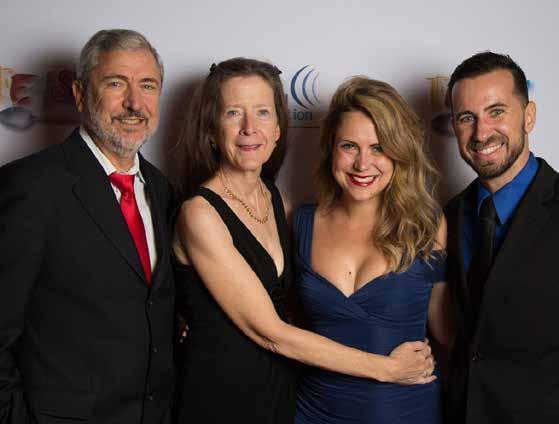managing hearing loss
hearing health foundat i o n
Opposite page: Take a cue from Aristotle (shown in this statue in Germany) and appeal to your reluctant loved one’s ethical, logical, and emotional senses in order to encourage them to try hearing aids.
How We Got Our Dad to Say Yes to Hearing Aids… …With some help from Aristotle. By Rohima Badri, Ph.D. My dad, without a doubt, is the most challenging hearing aid patient I’ve ever had! And he jokingly says that it was his payback for all my childhood mischief. This is the story of how my family used Aristotle’s three appeals—ethos, logos, and pathos—to encourage my dad to take action on his hearing loss—that is, to try hearing aids! To be honest, we had no idea that our method had its roots in the ancient form of persuasion at the time, but what’s important is that it worked. Hearing loss affects and challenges everyone in the family, not just the person who suffers from it. And one thing we quickly realized was that convincing your loved one to seek help is a marathon that requires a lot of patience, resilience, and empathy. Some of the early signs of hearing loss we noticed in Dad were asking us to speak up, turning up the TV volume, and saying “what?” a lot. Any subtle references to his hearing ability were frequently met with Dad firmly declaring that everything is fine and that the entire world has begun to mumble and speak in fashionably low voices. Often, denial of hearing loss is the first and toughest barrier for the family to crack in the process of getting help for their loved one. If they can accept they have a hearing loss and get a hearing test, that is half the battle won! This is where Aristotle’s three appeals—ethos, logos, and pathos—helped us get our dad into an audiologist’s office. Ethos (appeal to someone’s ethical sense): Establish your credibility by standing by your family member with a hearing loss and gaining their trust. Even though I have a doctorate in hearing sciences and training and experience as an audiologist, I still had to work to earn my dad’s trust that I would be empathetic, supportive, dependable, and 12
hearing health
hhf.org
honest throughout the process. Our family wanted our dad to take action on his hearing loss, but it was important for him to know that when we suggested hearing tests and, eventually, hearing aids, we were keeping his interests, challenges, and needs in mind. As a result, even before we began educating him about hearing loss, we first listened to his stories and challenges, empathized with him, and understood his reluctance without passing judgment. Logos (appeal to their logical senses): Establish your knowledge on the subject and use logical reasoning and sound ideas to educate your family member with a hearing loss. I researched studies and curated articles that would resonate with him. I presented statistics, expert opinions, and testimonials, as well as video clips, illustrating how untreated hearing loss affects overall quality of life. Also, I highlighted the far-reaching effects of untreated hearing loss—isolation, depression, and a decline in cognitive abilities—and the importance of timely intervention. Most importantly, we made sure not to exaggerate or overwhelm but instead let the facts speak for themselves. We gave him time and space to understand and process the information. Pathos (appeal to their emotional sense): Pathos, which means emotion in Latin, is the quickest and most powerful appeal you can make to your loved ones. Connect with your loved one’s emotions without jeopardizing the trust and credibility you’ve built. In other words, we needed to convey the facts to my dad in a way that resonated with him without alarming him as well. Remember, he needed to say yes for himself, not for us, so he wouldn’t become resentful of the entire process.














